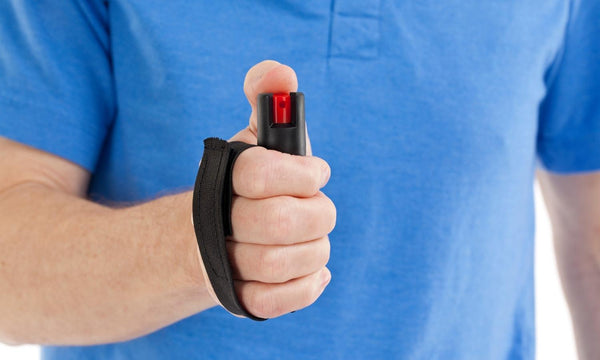
Personal alarms are small electronic devices that can be carried around and emit a siren sound. Personal alarms can be activated using a button or tag to alert the user that there is a danger. They are legal to carry in all 50 States. A personal alarm is useful if you are concerned about safety.
Self-defense personal alarms can be used as a form of self defense
An alarm personal can deter an attacker, and even call for help if they attack. You can set it up at will and it will make a loud sound. It will also attract the attention of other people. It can also be heard hundreds of miles away and could send the assailant running.
They emit a high-decibel emergency noise
In an emergency, the loudest personal alarms will emit a high decibel sound. These alarms produce a loud sound that is similar to what tornado sirens make. If the alarm isn't dealt with quickly, it can cause pain or hearing loss. These alarms may be activated using a lanyard and removing a metallic pin.

They can be attached to a keychain
Personal alarms can be carried on a keychain and used to protect you or loved ones during an emergency. They are legal for use in all 50 States and are very easy to use. The alarm will sound by simply pressing a button. A few personal safety alarms even have a backup whistle.
They are legal to carry in all 50 states
Personal alarms provide cost-effective self defense and are legal across all 50 states. They are loud enough to scare off potential attackers. They can be attached to a keychain or clipped onto clothing. You can push a button to activate them. A personal alarm can also send an alert to other people in case of an attack. Some models include a backup whistle.
They are simple to use
Personal alarms let authorities know where you are in the event that you fall. They are battery-operated, easy to use, and simple to set up. They can be worn around a neck or hidden in a small pocket.
They are easily portable
Personal alarms, which are small and portable, sound an alarm when activated. They can be heard from up to 1000 feet away and are effective in scaring off criminals. They also feature a strobe light on the front that flashes if the alarm ring is pulled. If they are not easily visible by the suspect, these devices can be used as deterrents by the police.

They are affordable
Personal alarms are an excellent way to ensure that the elderly and infirm remain safe at home. They are very inexpensive and can alert emergency services if the person is feeling unsafe or alone. Pendant buttons can be worn around the wrist or neck to activate personal alarms. They are waterproof, so they can be of great assistance in times when you need it.
FAQ
Is it legal to give a stungun to a child.
It all depends on the child's age.
For those under 18:
Yes, 18-years-old and over
You must make sure that minors understand the risks of having a stun gun.
They should only use it with adult supervision.
What are some tips for self-defense for women?
When practicing self-defense, you need to be able to react quickly. You must be prepared for everything.
Train with friends is one of your best options. Partnering with a friend will enable you to practice together, and improve your technique.
Another tip is that you should practice with something heavier. If you are being attacked, you will be more likely hit hard by your attacker if you are holding something heavier.
How do beginners do self-defense?
Not only are experts trained in self-defense, but so is everyone else. It is important to learn how to defend oneself when you are on your own. These basic moves will help you defend yourself against attacks.
Start by learning basic movements like punching, kicking and kneeing. Then you can add more advanced moves like grappling and joint locks.
It is always good to practice things that are similar to what you would encounter in real-life situations. You should try to learn how you can kick someone on a soft surface like a pillow.
By doing this, you will not injure yourself while practicing. Also, ensure you don't hit anything hard because you might break something.
Statistics
- The Rape, Abuse & Incest National Network reports that 70 percent of sexual violence cases aren't committed by random strangers in a dark alley but by people we know: friends, family, partners, co-workers, etc. (healthline.com)
- In a January 2018 survey of 1,000 women nationwide, 81 percent reported experiencing some form of sexual harassment, assault, or both in their lifetime. (healthline.com)
- Saying this, Self defense 101 would be the importance of situational awareness, which can never be replaced by the finest of martial arts, because it is this that would help you to avoid any likely attacks in the first place. (worldofselfdefense.com)
- Most likely, the person will want some kind of boxing match, so if you can out-box them, this would be 100% ideal for survival. (budodragon.com)
External Links
How To
How to Survive an Invasion at Home
Home invasion can be a frightening thought, especially if there are children involved. We didn’t know that we would be experiencing it ourselves as we embarked on our home security system installation adventure. Here's our experience so far.
-
Do not let your children see the attackers. Our kids were sleeping upstairs when two men broke into our house. They were kept downstairs until the police arrived. Our kids weren't hurt, but they saw enough to traumatize them.
-
All valuables should be secured We keep valuables locked up in a safe in our bedroom. Even if someone broke into the house, they won’t have access to it.
-
Keep an eye out for burglars. We live in a neighbourhood that is notorious for burglaries. We watch out for suspicious cars and people.
-
Have A Backup Plan. We will provide financial support for our family in the event of an emergency. If necessary, we have a plan for leaving the country.
-
Be prepared. You must be prepared if you find yourself in a position where you have to defend your life. Be prepared with food, water, as well as other supplies.
-
Call 911 first. If someone breaks into your house, dial 911 immediately. It's better to call the authorities than to wait for them to break down your door.
-
Use common sense. Do not allow anyone to enter the house if they aren't welcome. Do not invite strangers.
-
Get Help From Neighbors Or Other People In The Area. If you feel uneasy, call friends or neighbors. They will be able to watch your back and call the police.
-
Be calm and follow the instructions of police officers. Keep calm and follow the instructions of officers. Do not run away from officers or resist arrest.
-
Take Pictures Of Any Evidence. Photograph any evidence that is found during an investigation. This includes blood samples and fingerprints.
-
Local Law Enforcement can be contacted to file a report. File a report with law enforcement even if no one was injured. You may be able to prevent other crimes.
-
Get in touch with your insurance company immediately. Call your insurance company immediately. Let them know everything and then ask for an adjuster.
-
Retire Personal Belongings. You should get rid of all personal belongings. Take off expensive jewelry and keep it safe.
-
Take Care of Yourself. Take care of yourself. Take out the trash and break glass and lock all doors and windows.
-
Don't talk about the events. Talk about what happened. You never know who could use this information against your later.